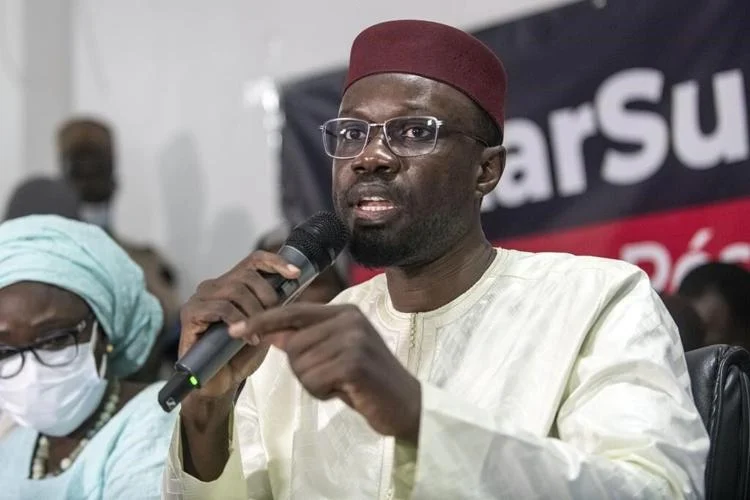
AP Photo/Sylvain Cherkoui,File.
In Senegal, Ousmane Sonko, a prominent opposition leader, has been released from prison just before the upcoming presidential election, leading to widespread jubilation in the capital, Dakar. Sonko's release is seen as significant, given his status as a major contender against President Macky Sall's ruling party.
Sonko's imprisonment stemmed from a protracted legal battle over his candidacy for the March 24 election. He had been detained since July, but his release, along with that of his ally Bassirou Diomaye Faye, marks a turning point in Senegal's political landscape. Their freedom was met with enthusiastic support from their followers, who gathered in large numbers outside the prison complex and Sonko's residence, chanting slogans and waving flags late into the night.
The opposition leader's popularity, particularly among young voters, stems from his vocal stance against corruption and economic hardship in Senegal. His third-place finish in the 2019 presidential election demonstrated his significant support base and made him a formidable challenger to President Sall.
The decision by Sall not to seek a third term followed months of protests led by Sonko's supporters, demanding political change. These protests, although at times resulting in violence, highlighted Senegal's reputation for stability in a region often plagued by political unrest.
Sonko's presidential aspirations were initially marred by legal challenges, including accusations of rape in 2021. While he was acquitted of these charges, he was convicted of corrupting youth and sentenced to two years in prison last summer. Despite facing legal obstacles, Sonko remained a prominent figure in Senegalese politics, with his supporters viewing his legal troubles as politically motivated attempts to undermine his candidacy.
In January, Sonko was disqualified from the presidential race due to a suspended sentence for defamation, according to Senegal's Constitutional Council. However, his release from prison following Sall's decree to pardon political prisoners, including those arrested during last year's protests, has reignited hopes among his supporters.
As the presidential campaign officially kicks off, Senegal faces a period of heightened political activity and uncertainty. President Sall's attempt to postpone the election last month sparked renewed protests, prompting the Constitutional Council to order the government to set a new date promptly.
The upcoming election will test Senegal's democratic institutions and determine the country's political trajectory for the foreseeable future. With Sonko's release and subsequent reentry into the political arena, the contest promises to be closely watched both domestically and internationally.















